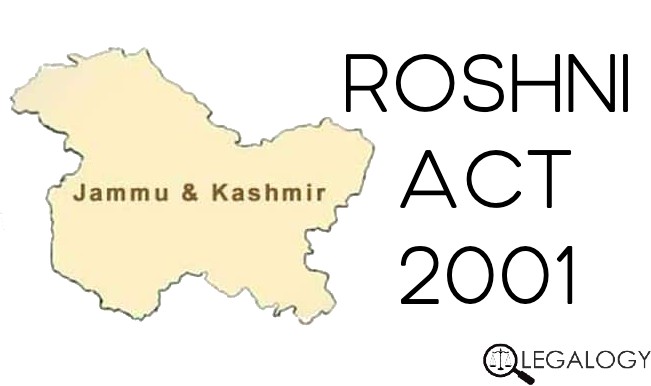On October 9, 2020 the Jammu and Kashmir High Court in one of its historic decisions passed by the bench of Hon’ble Chief Justice Gita Mittal and Hon’ble Mr. Justice Rajesh Bindal held The Jammu and Kashmir State land (Vesting of Ownership to the Occupants) Act, 2001 unconstitutional. Following this decision, the Government of the said Union Territory passed an order on October 31, 2020 holding all the transactions which have taken place under the act null and void. After the abolition of Article 370 of the Indian Constitution, this decision is being considered as the next major change in the UT. Here is all you need to know about the famously known Roshni Act.
The Jammu and Kashmir State land (Vesting of Ownership to the Occupants) Act, 2001 received Governor’s assent on November 13, 2001. The Preamble of the act states that the act provides for “vesting of ownership rights to occupants of State Land for purposes of generating funds to finance Power Projects in the State.” It was Farooq Abdullah’s government which enacted the said Act in the year 2001 that underwent two major amendments in 2004 and 2007 respectively. The said repealed act provided a cut off year in its Section 5(b) under which the ownership of the land was to be transferred to only those occupants who had been in possession of the land (by whatever means of acquisition) during the period 1990 to the commencement of the act in a particular area.
Thereafter, the PDP-Congress led Mufti government brought an amendment in 2003 by which the cut off year of land possession was relaxed from 1990 to 2004 which was again changed to 2007 by Ghulam Nabi Azad led PDP-Congress Government benefiting the occupants. This legislation had thus encouraged encroachment of State and Forest lands due to which the elites looted the poor and became richer whereas the poor got poorer.
Emphasizing upon the principle laid down by the Hon’ble Supreme Court in (2012) 3 SCC 1 Centre for Public Interest Litigation v. Union of India, it has been observed that the State is the legal owner of the natural resources as a trustee of the people and although it is empowered to distribute the same, the process of distribution must be guided by the constitutional principles including the doctrine of equality and the larger public good.
The need to regularise the ‘Loot scam’ was realised and therefore an audit was conducted by the Comptroller and Auditor General (CAG) in 2013 wherein the report revealed that out of 3,48,200 kanals of land, 3,40,100 had been transferred free of cost as agriculture land (1 acre = 8 Kanals). The aforesaid report also pointed out that out of the estimated Rs.25,448 crores, the government had collected only Rs.76.24 crore (24 per cent) of the total estimation. The J&K High Court has held the Act in complete violation of the right to health, education and the good environment under Article 14 (Right to Equality) and Right to Life under Article 21 of the Indian Constitution as well as the amendments have been found unconstitutional, contrary to law and unsustainable inclusive of Jammu and Kashmir State Lands (Vesting of Ownership to the Occupants) Rules, 2007.
Mr. Ankur Sharma, a resident of Kathua had filed a PIL on March 13, 2014 bearing No. 41/2014 titled Ankur Sharma vs. State of J&K and ors. seeking a declaration of the Jammu and Kashmir State Lands (Vesting of Ownership to the Occupants) Act, 2001 and the rules framed thereunder i.e. The J&K State Lands (Vesting of Ownership to the Occupants) Rules, 2007 as unconstitutional/illegal being ultra-vires the Constitution of the State of Jammu and Kashmir. Following the PILs and suspicions being raised upon the Ministers, legislators, bureaucrats, high ranking Government and police officials having encroached upon public lands and having caused orders passed under the Roshni Act in their favour, the Hon’ble High Court passed order requesting Central Bureau of Investigation (CBI) to take up the matter to enable a fair, proper and complete investigation. In the year 2018, the then Governor of the state Satya Pal Malik abolished this Act and cancelled all the pending applications under the Act though validated the land already regularised under the Act by paying fees.
The order of the Hon’ble Court indicated towards taking appropriate criminal action against those who have been found guilty of illegal encroachment of States land, permission to raise construction as well as those who have granted a license to put such land to use. The Union Territory has ordered to retrieve all the land which has been transferred under the repealed act and remove encroachments within a period of six months. These decisions have marked their place in the beautiful history of our country and will act as effective and fruitful precedents for the judiciary to look up to.













